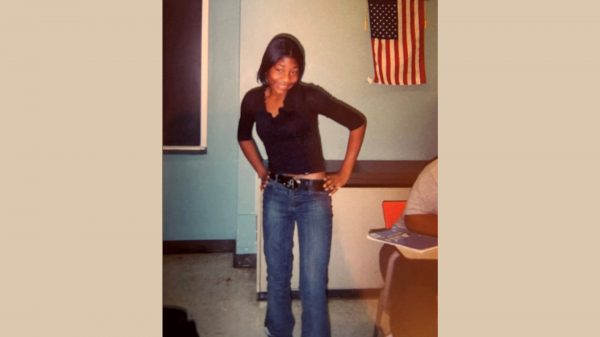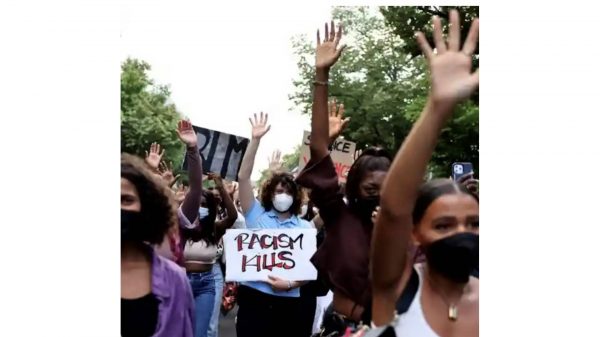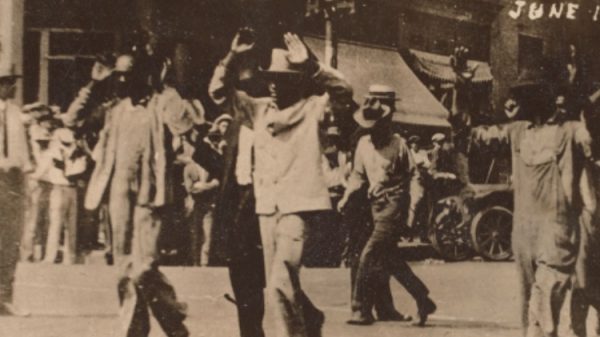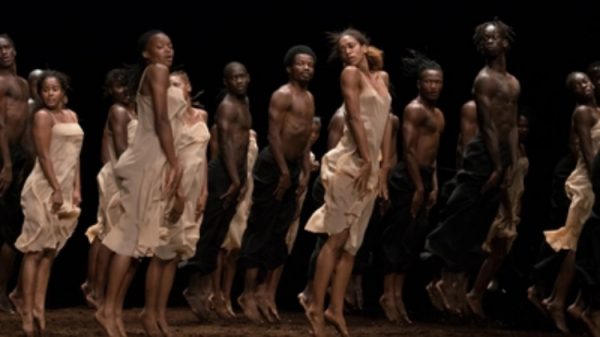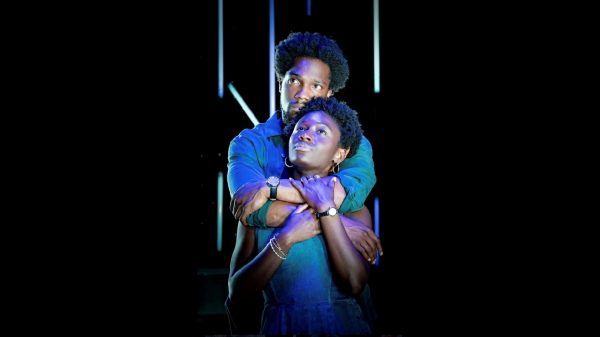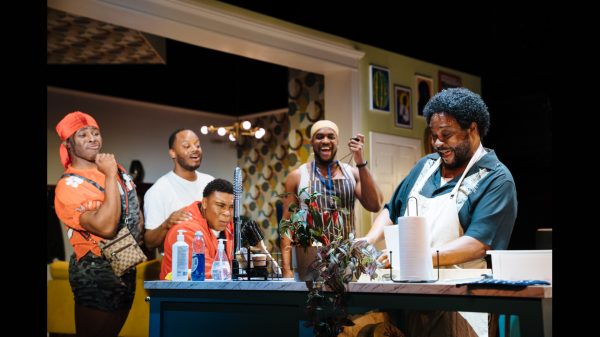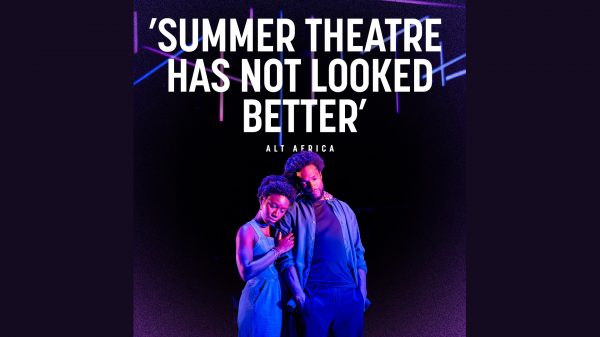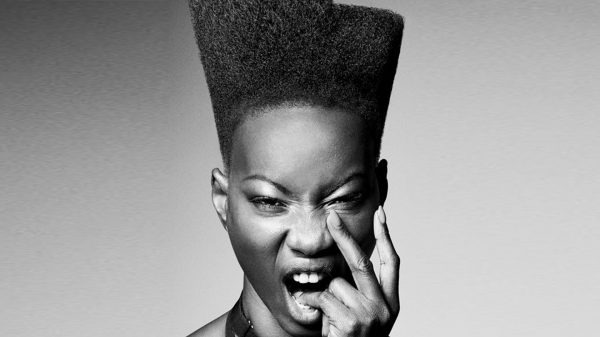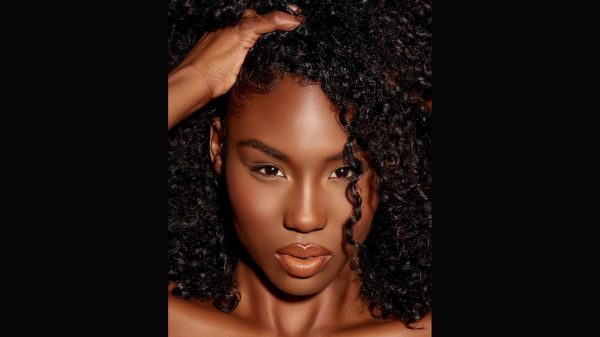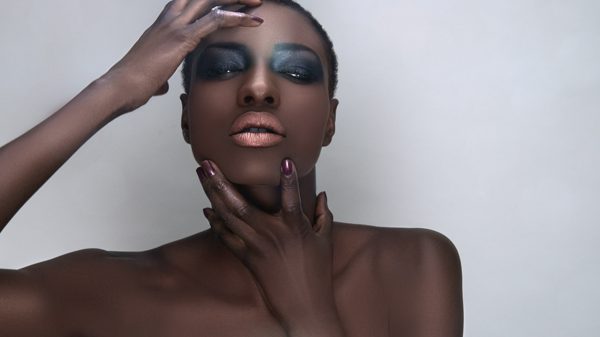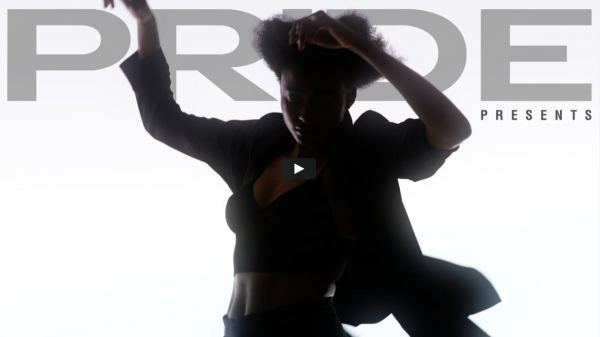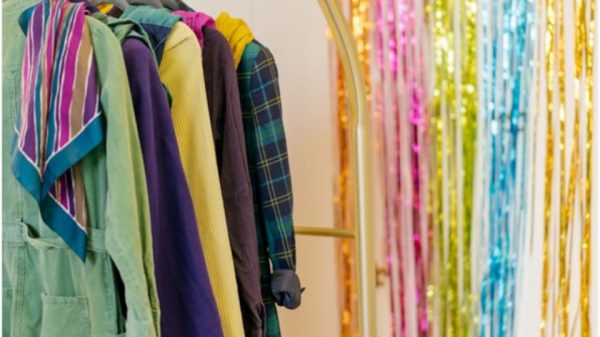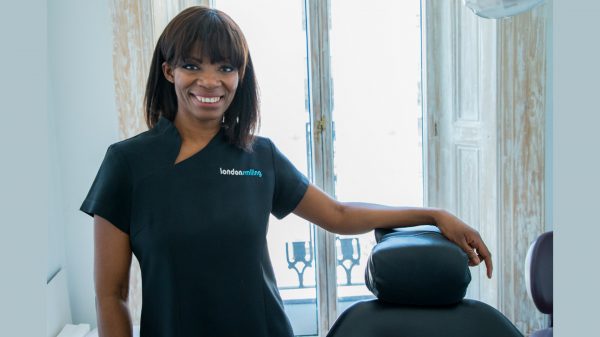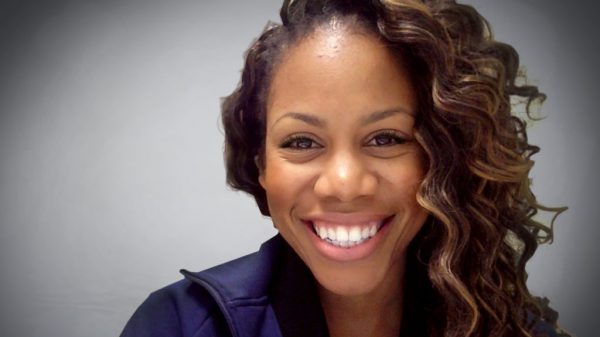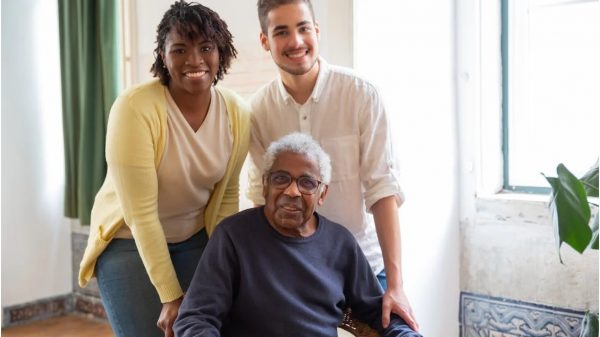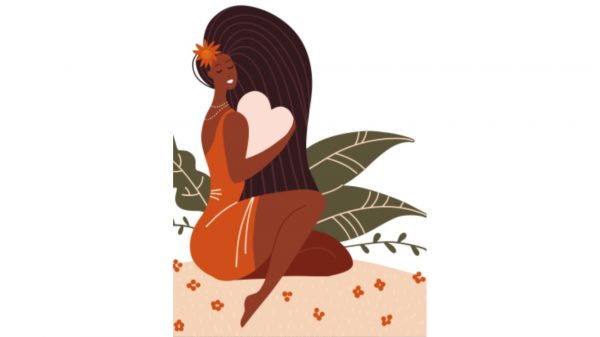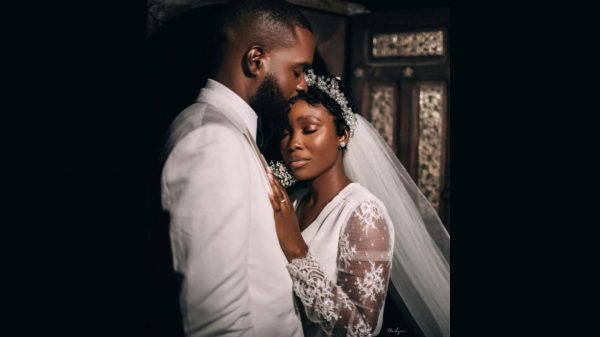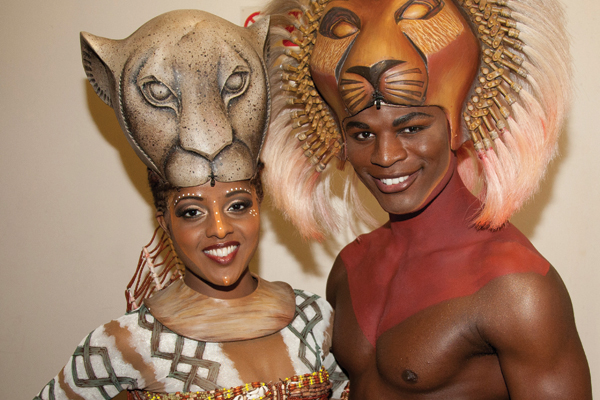The Lion King is the West End’s most successful show ever, raking in more than £34 million and playing to 820,000 theatre-goers in 2010 alone. Pride’s Afua Adom was granted exclusive access behind the scenes of this award-winning show and got to hang out with its stars Narran McLean, who plays Nala, and Andile Gumbi, who plays Simba.
There’s not a lot of things that I get excited about, but getting to sneak around the set of The Lion King was definitely one of them. After all, how many people can say they got to see how a West End production really works? From make-up rooms and dedicated beading rooms to seeing Timon, Pumbaa and Mufasa (cue screams!) wander past, it certainly didn’t disappoint. Although my plans to appear onstage as a (rather unfit and uncoordinated) member of the chorus were quickly thwarted, I did get to sit down with Narran McLean and Andile Gumbi, otherwise known as Nala and Simba, in-between them being made-up and dressed up and warming up their voices. Talk about dramatic transformations…
Pride: So tell me guys, how did you get your parts in The Lion King?
Narran: I wasn’t in a great place in my life. My agent called me and said, “Look, there are auditions for The Lion King. We have got you a slot.” I auditioned and auditioned! You have to audition up to nine times, and there were seven girls left in the final. Each time I auditioned, I got through to the next stage. I would say to my agent, “Okay, I have auditioned twice now. Have I got the job?” And he was like, “No hun, they want to see you again.” I was like, “What? See me again!?” So I went there nine times, and everybody just helped me through it. They make you feel so comfortable and confident that you can do it.
Andile: I joined The Lion King in South Africa about five years ago straight from school – I did drama, dance, acting and singing in South Africa, where I was born. Then I went to Australia and I covered Simba. Two years later, the production in Australia closed, and they opened in South Africa, so I auditioned to play principal Simba. Nine months later, the guy who played Simba here left, and the producers called and said, “Do you want to come to London and play Simba?” I was like, “Hell, yeah!”
Pride: Andile, you’ve played Simba in Australia, South Africa and London. How do all the productions compare?
Andile: They were all very different. I think it’s the people that make the productions different as
well. In South Africa, it was an all-South African cast, so that adds a lot of depth to the African story. Then you come to London, and there are people from different backgrounds, and that adds a different element too. All companies are special in a way. I think my favourite would be the South African production, because I was at home. Being at home and getting my family to come and see the show whenever they wanted was a great thing for me.
Pride: Narran, how did you make the leap from music videos for Jay-Z, Alicia Keys and So Solid to the West End?
Narran: I was never with any agency when I was younger, but I used to go to all the hot spots and hang around all the pretty girls, so wherever they would go, I would go. I would find out that there was a director here and a person that did casting there, and some of the girls would be like, “Oh, I’m going to a casting for a music video,” and I would kind of gate-crash it! Then, as you go to one video, the director will be doing another, so they would call and say, “Listen, we really want you to do this video.” Then, when I was on an agency’s books, I auditioned for Daddy Cool and got the part. I went on tour with that. I was the first Nala that just came out of nowhere. I auditioned and got the part without being in the chorus or anything.I’d never done the West End before, so I kind of landed on my feet. God blessed me with this position.
Pride: What’s a typical day in the life of Nala and Simba like?
Narran: Well, I can’t get to sleep until three o’clock in the morning after a show, so that often shapes my days! By the time I finish, it’s ten o’clock, so I’ll wind down and shower in my dressing room, then I leave here and I jump on my motorbike. Sometimes I get a taxi, if I have a lot to carry. I buy food on the way, which might be Nando’s chicken. I get home, have a shower there too and then I put the food in the microwave. I sit in the living room, eat my Nando’s, brush my teeth and then I just sit there and listen to music. I might have a look on Facebook or I might watch some movies. I don’t like to watch too much TV. Although I am an EastEnders fanatic – I love EastEnders!
Andile: I usually sleep in, maybe wake up around 11am, have brunch and then go to the gym, run some errands and do whatever I need to do before I come to work. Then, after work, I go home, sit in front of the TV or the computer, sometimes do some writing or watch
some movies. I find it hard to go straight to bed too when I come home, so I need to wind down.
Pride: How does it feel to be in such a massively successful production, one that everybody loves and everybody talks about?
Andile: It’s quite exciting! People’s reactions make you realise that this is big. If someone asks, “What do you do?” and you tell them, “I’m in The Lion King, I play Simba,” they’re like, “Wow!” Their reaction makes you realise that this is huge. You get to appreciate it more when you see people respond to what you do, especially when they come to see shows. Then you go outside the stage door and you meet people, and they are excited to see you and get your autograph… Stuff like that, you know. It’s quite overwhelming, but it’s really cool.
Pride: What are your favourite songs from the show and why?
Narran: My favourite song in the show has to be “Hakuna Matata”. I just love the energy of it and that they found a word that could take away all your worries – I think it is a form of escapism. People create things to take away a bad situation; it’s something you can believe in to make you feel better.
Andile: “They Live In You”, which Mufasa sings to young Simba. I love that song – it is beautiful. It tells you a lot about the father-son relationship between them. I’d love to sing that song.
Pride: Why do you think The Lion King is such an important story that resonates with so many people?
Narran: Because it touches home on a lot of realities in our everyday lives, the fact that in every family there is someone you’re not going to get along with, like with Scar and Mufasa. I know it’s based on animals, but it actually could be real-life stories. Simba initially couldn’t face up to being a man and didn’t have the guts to do what’s right, but when he comes home, he takes his rightful position as king. Simba stepped up, and the show teaches young men who come to see it to step up and be a man. You know, I have had countless letters saying, “Wow, I love Nala. She is so strong and she loves everybody,” and I’m thinking that people really get into the show, into the characters and what the show is about. That’s amazing to me.
The Lion King is on now at the Lyceum Theatre.



